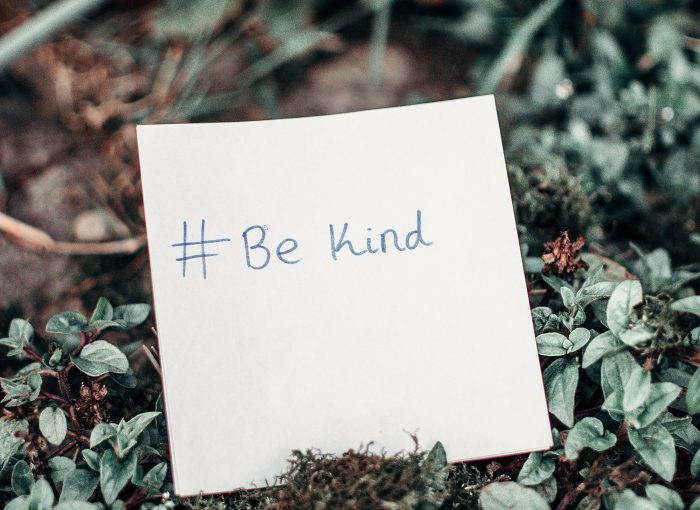By Rebecca Soto
We have failed at listening. We’ve failed at listening to victims of racism, to the racist utterances of our family members, to the hateful words and photos we see posted online. Though we may hear and read these things, we have failed to comprehend what they reveal about the people they come from. At the heart of what some may see as casual jokes or slurs is the dehumanization of people of color. The violent language and apathetic responses to racism reveal that there are white people who, deep down, view people of color as less than human. Those beliefs manifest themselves in harmful, and sometimes deadly, ways all the time.
I’ve been doing anti-racism work for several years now and definitely have lots of thoughts, opinions, and feelings about it on a daily basis. As a white woman in an interracial marriage, it’s been critical work that I’ve committed to largely in part because the man I love is not white and does not look like me. But also, because of the systems and policies our country has operated on his life on the deepest of levels has looked so different from mine.
A significant emotional skill I’ve learned that’s been the backbone of my anti-racism work is knowing and practicing the difference between sympathy and empathy. In short, sympathy is what we can offer when we haven’t experienced the pain someone else is going through. It’s, “I can only imagine how hard that must be. That must feel so heavy.” Empathy is what we can offer people who are struggling when we have been through the same thing. It’s, “Me too. I’ve been there and am familiar with what that feels like.”
As a white woman, I have never experienced racism to the point that my life was in danger. I have never been denied dignity or kindness from others because of the color of my skin. My worth has never been up for debate or determined based on the amount of melanin in my skin or my employment status or the language I spoke or where I was born. But just because I’ve never experienced those things doesn’t mean, first of all, that they don’t happen. And secondly, just because I’ve never experienced those things doesn’t mean that I’m exempt from putting in the effort to imagine what it must be like to experience that kind of racism for your entire life.
I can’t offer empathy, but I can sure as hell try my best to sympathize with those people, to imagine how they must feel and acknowledge those feelings with kind words and listening ears, without minimizing or justifying their experiences. I get to decide whether I’ll believe someone when they say, “I’m hurting, and I’ve been hurt.” I get to choose how I’ll respond. For me, it’s empathy when possible, sympathy when I can’t empathize, and kindness. Always, always kindness.
Practicing anti-racism also takes an acute level of self-awareness, which is the conscious knowledge of the many parts that make up you: your thoughts, feelings, actions, motives, beliefs, and desires. Growing up as a white person in the United States, this step has taken continual hard work and intentional action for reasons described accurately by Ibram X. Kendi, author of How to Be an Anti-Racist, when he was a guest on Brené Brown’s Unlocking Us podcast:
“…to grow up in America is to grow up, and for racist ideas to constantly be rained on your head and you have no umbrella. And you don’t even know that you’re wet with those racist ideas, because the racist ideas themselves cause you to imagine that you’re dry… And then someone comes along and says, ‘You know what, you’re wet, and these ideas are still raining on your head. Here’s an umbrella.’ You can be like, ‘Thank you, I didn’t even realize I was drenched.’”

Self-awareness is not a skill you can just coast through and master. Emotional self-awareness was one of the hardest skills I learned during my years in mental-health therapy. For a time, I even set a reminder on my phone to go off several times a day to check in with how I was feeling at that moment. Anti-racism requires that same level of intentional self-awareness. We’ve all been getting rained on, and we’re wet whether we’re aware of it or not.
A willingness to be vulnerable is vital to anti-racism work. We must look deep inside ourselves and look for ways we’ve lived out racist ideas and beliefs. Vulnerability in this area can be painful and hard because we all want to believe the best about ourselves, and it’s so much easier to just avoid doing any digging at all. I would argue, though, that the discomfort we feel when reflecting on the ways we’ve been racist is nothing compared to the painful, deadly racism people of color have been experiencing for centuries.
It’s up to us to be willing to look for and see those dark parts of ourselves and then act. It’s up to us to practice a brave curiosity about our deepest beliefs that leads us to educate ourselves about anti-racism. It’s up to us to do the work of self-reflection, no matter how worried we are about what we might find when we do. Vulnerability is hard and scary, but the cost of not prioritizing it has been and will continue to be extremely harmful to people of color.
Creating Change starts with ourselves.
White people, it starts with us. In what ways have you provoked racism or violence? In what ways have you silently stood by and watched racism and violence happen to people of color? What are your learned beliefs about people of color? What are the inherent beliefs that have settled so deep inside you that you have to intentionally go look for them? Have you really listened to the racist messages inside you and around you and called them out? These are the painful and necessary questions we have to ask ourselves. We have to go looking for the dark thoughts and feelings inside of us, as ashamed as we might be of what we might find, because that is where changes in beliefs and behavior can begin.
No matter where you are on your journey with anti-racism, we all have the opportunity (and responsibility, I would argue) to be lifelong learners in this area. We have to do the work. We must educate ourselves, read some books, and listen to some podcasts. As UCF students we’re so immensely privileged to have access to a massive library and countless research and journal articles where we can learn about the history of racism and how we’ve held up racist systems of oppression. We must check in with our deepest thoughts and beliefs and hear what they’re saying, and UCF resources like individual or group counseling through CAPS are just a couple of places where we can learn emotional skills like self-awareness and vulnerability to help us on the path towards anti-racism. Finally, we must create space in our lives for the voices of people of color and truly listen to them. The costs of dehumanization and violence are too high not to.




